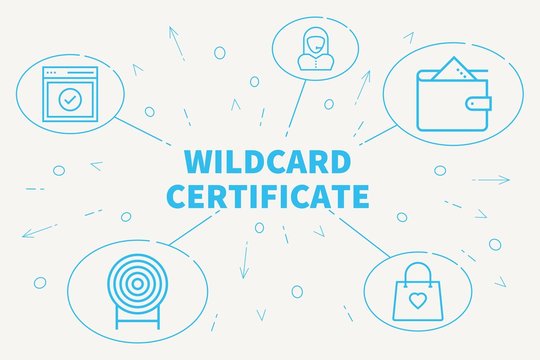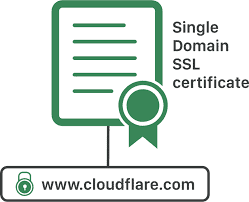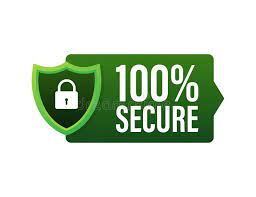If you are a website owner, it is important to understand the different types of SSL certificates and why they matter.
SSL stands for Secure Sockets Layer, and it is an encryption protocol that creates a secure layer between two applications.
It is used to protect sensitive data from being stolen or tampered with during transmission over unsecured networks such as the internet.
SSL certificates are issued by certificate authorities (CA) and installed on web servers in order to secure connections between websites and browsers.
There are several different types of SSL certificates available, each with its own unique features and advantages. Let’s take a look at the most common types of SSL certificates available today.
The security protocol known as SSL, or “Secure Sockets Layer,” verifies and encrypts data sent over a network connection between a web server and a web browser.
An SSL certificate protects the connection between your website and its visitors from unauthorized access.
Types of SSL Certificates:
1. Single Domain Certificate
A single domain certificate provides encryption for one domain name only. A single domain certificate is best suited for small websites or personal blogs.
This type of certification secures one domain name, such as www.example.com or example.net. It can also cover subdomains, such as blog.example.com or store.example.net.
This type of certificate works best for small businesses or individuals who only need to protect one URL. It is affordable and easy to install and manage.
2. Wildcard Certificate
If you have multiple subdomains on your website, then a Wildcard SSL certificate may be ideal for you.
It allows you to secure all of those subdomains with just one certificate instead of having to purchase multiple certificates or manually apply each individual subdomain’s certificate separately.
Wildcard certificates are similar to single domain certificates in that they provide encryption for one domain name, but with wildcards, you can also add subdomains with the same certificate.
This makes it easier to manage multiple domains or subdomains with just one certificate.
3. Multi-Domain (SAN) Certificate
Multi-domain (SAN) certificates are ideal for larger organizations that need to protect multiple domain names or subdomains all under one certificate.
This type of certificate offers more flexibility in terms of adding extra domains as needed without having to purchase additional certificates for each new URL added. Extended Validation (EV) Certificate.
4. Extended Validation Certificates
An Extended Validation (EV) Certificate offers the highest level of authentication for websites compared to DV or OV Certificates, making it ideal for websites that require higher levels of customer trust or have sensitive data such as eCommerce sites or medical websites.
An EV Certificate requires additional verification steps such as validating official documents issued by the government, confirming physical address, etc., before issuing the certificate which makes it harder for attackers to impersonate legitimate websites.
As such, EV Certificates are trusted more than DV or OV Certificates by customers and browsers alike.
Extended Validation (EV) certificates are the most secure type of SSL available and offer the highest level of trust and security for your website visitors.
EV certificates require additional verification before they are issued which helps ensure that your company is legitimate and trusted by customers online.
The EV process also requires specific documentation from the company before issuing a certificate which helps build trust with customers who visit your website knowing that their data is safe and secure when visiting your site.
5. Domain Validation (DV) Certificate
A DV Certificate typically takes just minutes to issue and requires minimal effort on your part as it only requires that you prove control over the domain name in order to receive the certificate.
This type of Certificate is ideal if you own a small blog or personal website with no additional authentication needs.
6. Organization Validation (OV) Certificate
An organization validated (OV) certificate provides more comprehensive security than a DV certificate, as it requires applicants to provide additional documentation such as business registration documents in order to be approved for the certificate.
This additional verification also confirms that your business has been vetted and authenticated by a third-party authority like Comodo or Symantec, which can give customers added peace of mind when visiting your site.
OV certificates are generally recommended for larger websites with higher traffic levels, particularly those handling sensitive user information such as credit card numbers or personal data.
An Organization Validation (OV) Certificate offers more assurance than a DV Certificate since it validates your business identity as well as domain ownership when issuing the certificate.
The validation process requires more steps, such as verifying contact information, than with a DV Certificate, but also ensures that users have deeper trust in your website because it has been authenticated by a third-party provider.
This type of SSL certificate is ideal for medium and large businesses who want to display their verified business identity on their website and increase customer trust.
Quick Links:
- Ways to Get Your Free Domain
- Cloudways SSL
- Best PHP Hosting
- Reasons To Consolidate WordPress Hosting
Conclusion: Types of SSL Certificates 2024
As you can see, there are several types of SSL certificates available depending on what level of security and assurance you want for your website or online business.
Investing in an SSL certificate is an important step in protecting yourself and your customers from malicious actors on the internet – so make sure to do some research into which type would best fit your needs!
With the right SSL solution in place, you’ll be able to rest assured knowing that everyone visiting your website will have their data kept safe and secure!






